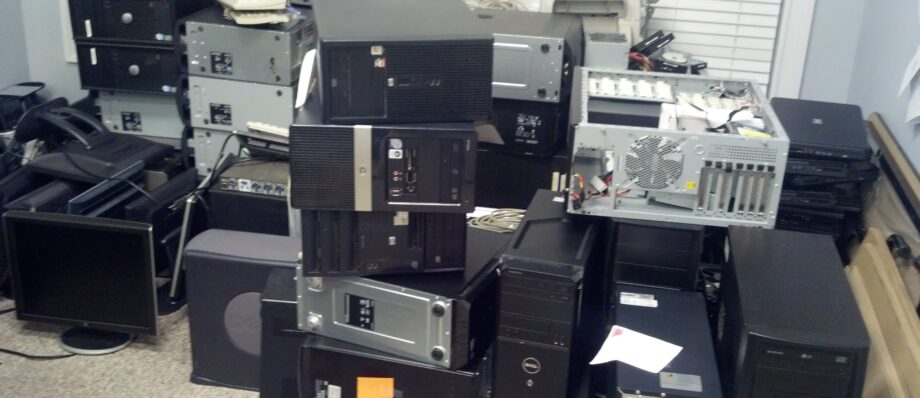The Importance of Recycling Computers
- September 16, 2021
- Uncategorized
- 2 mins read
Introduction to E-Waste
In today’s digital age, computers are an essential part of our daily lives. From work to entertainment, these devices are integral to modern society. However, the rapid pace of technological advancement means that computers quickly become outdated, leading to an increasing amount of electronic waste (e-waste). E-waste includes discarded electronics such as computers, smartphones, and televisions. Unfortunately, many of these devices end up in landfills, causing significant environmental harm.
Environmental Impacts of Improper Disposal
When computers are improperly disposed of, they contribute to several environmental issues. One of the most pressing concerns is the release of toxic substances. Computers contain hazardous materials like lead, mercury, and cadmium, which can leach into soil and water, contaminating ecosystems and posing health risks to humans and wildlife. Additionally, e-waste takes up valuable space in landfills, where it does not biodegrade and can persist for centuries.
Benefits of Recycling Computers
Recycling computers offers numerous benefits, both environmental and economic. Here are some key advantages:
- Resource Conservation: Computers are made from valuable materials such as metals, plastics, and glass. Recycling allows these materials to be recovered and reused, reducing the need for virgin resources. This conserves natural resources and reduces the environmental impact of mining and manufacturing.
- Energy Savings: Manufacturing new electronics from raw materials requires a significant amount of energy. Recycling reduces the energy needed to produce new products, leading to lower greenhouse gas emissions and a smaller carbon footprint.
- Pollution Reduction: By recycling computers, we can prevent hazardous substances from entering the environment. Proper recycling processes ensure that toxic materials are safely handled and disposed of, minimizing the risk of contamination.
- Economic Benefits: The recycling industry creates jobs and supports local economies. From collection and transportation to processing and repurposing materials, recycling generates employment opportunities and stimulates economic growth.
Case Studies and Statistics on E-Waste Reduction
Several countries and organizations have made significant strides in reducing e-waste through recycling initiatives. For example, the European Union’s Waste Electrical and Electronic Equipment (WEEE) Directive has set ambitious recycling targets and established extended producer responsibility, requiring manufacturers to take back and recycle their products. As a result, the EU has achieved higher e-waste recycling rates and reduced the environmental impact of electronics.
In the United States, companies like Dell and Apple have implemented comprehensive recycling programs. Dell’s “Dell Reconnect” program, in partnership with Goodwill, offers consumers free recycling for any brand of computer equipment. Apple’s recycling program provides consumers with the option to return old devices in exchange for credit toward new purchases. These programs not only promote responsible disposal but also raise awareness about the importance of recycling.
Conclusion
The importance of recycling computers cannot be overstated. As technology continues to evolve, the volume of e-waste will only increase, making it imperative to address this issue now. By recycling computers, we can conserve resources, save energy, reduce pollution, and support economic growth. Individuals, businesses, and governments all have a role to play in promoting and participating in computer recycling. Together, we can create a more sustainable future and ensure that our digital advancements do not come at the expense of our planet.



